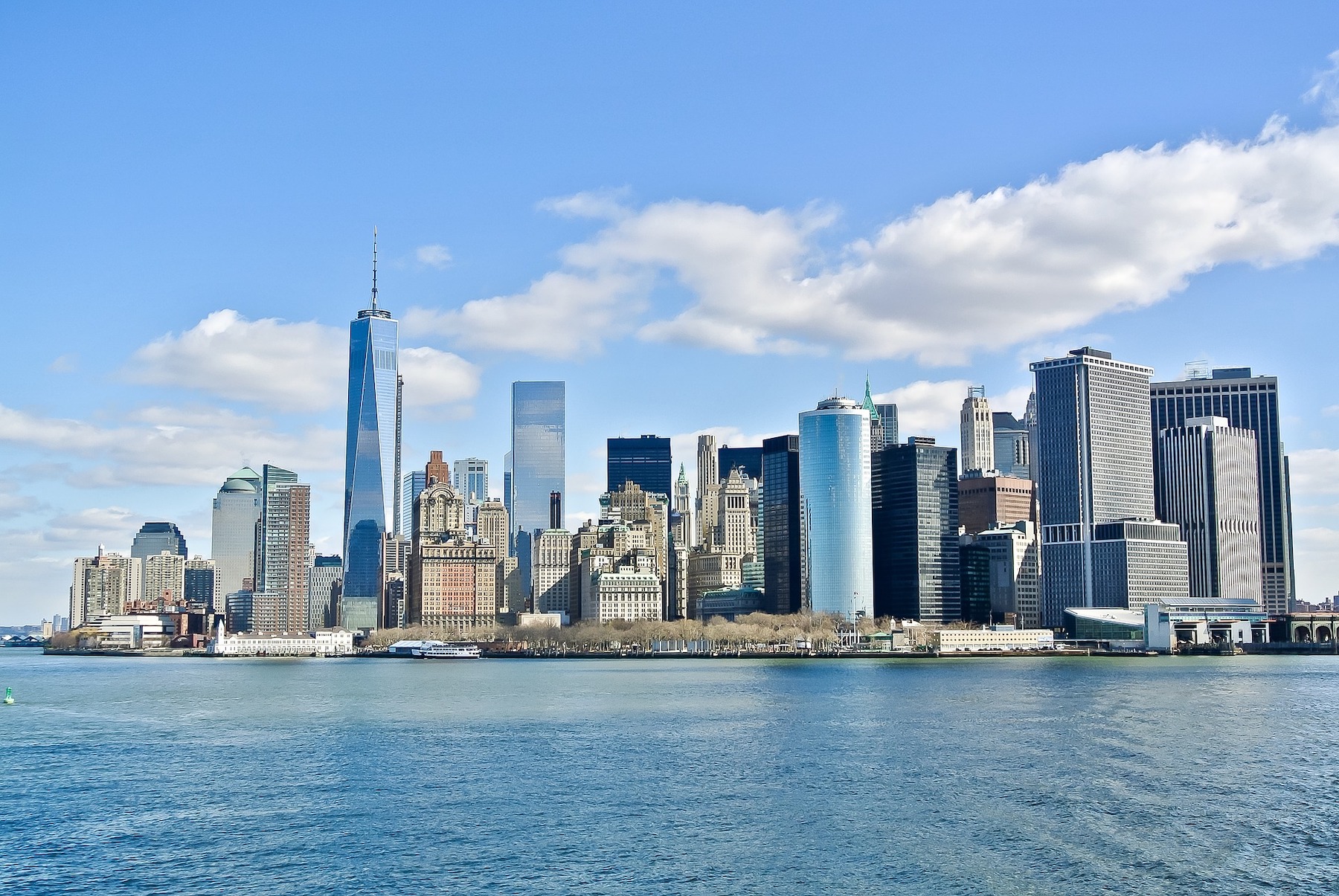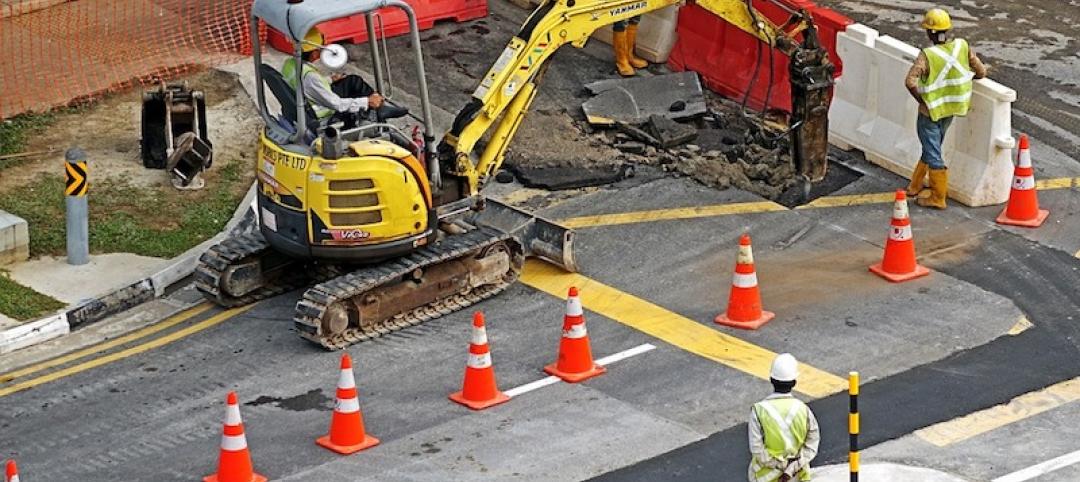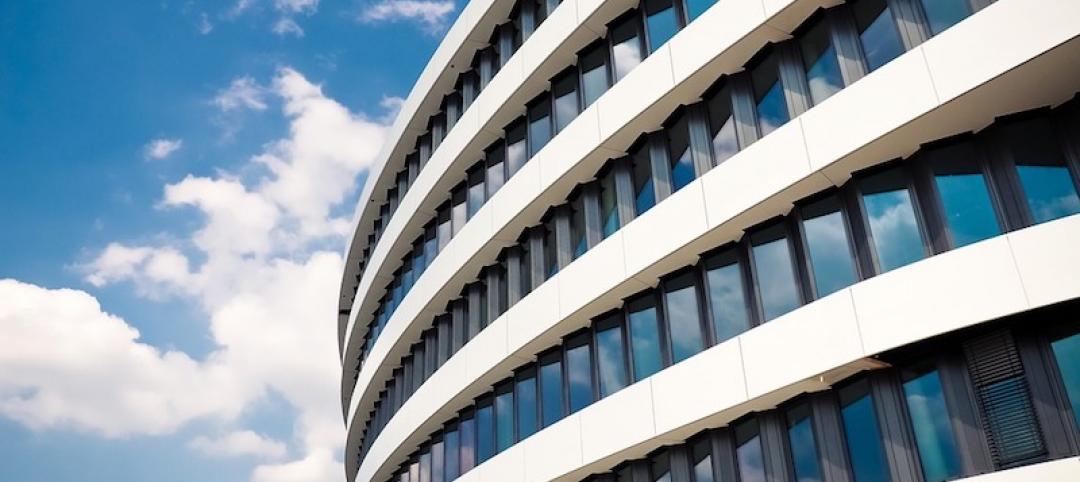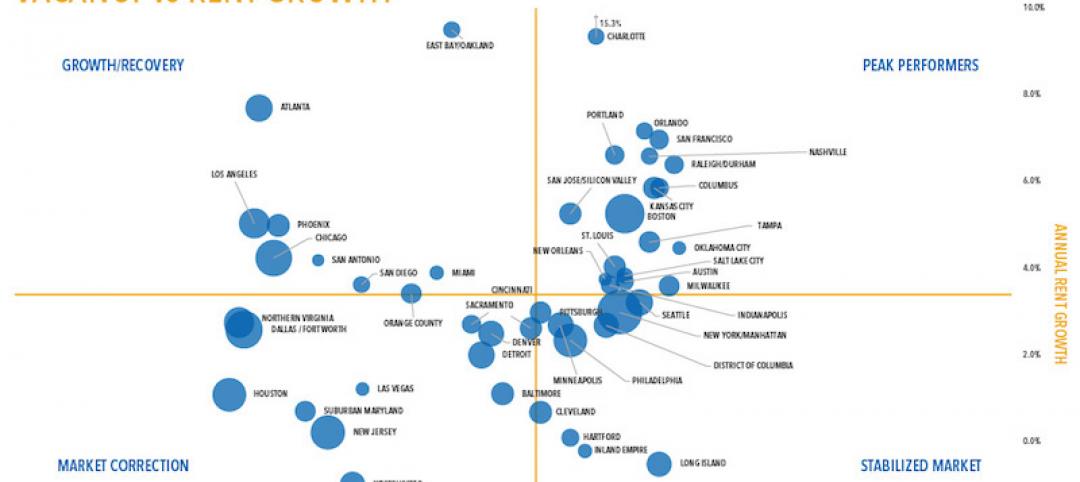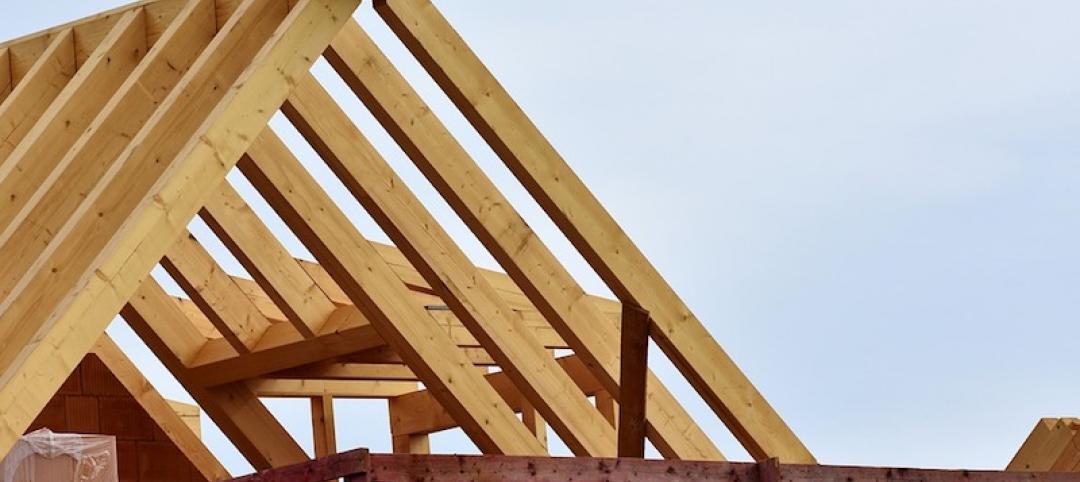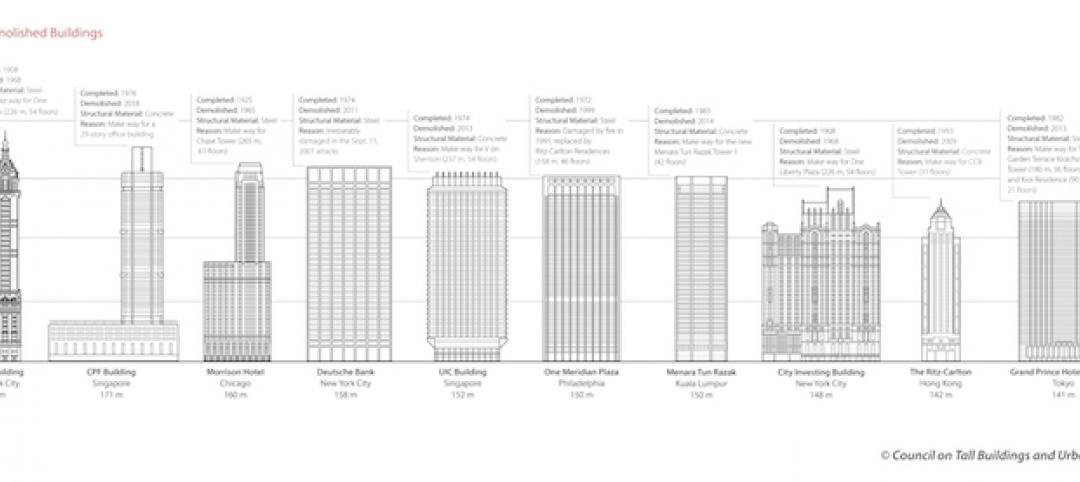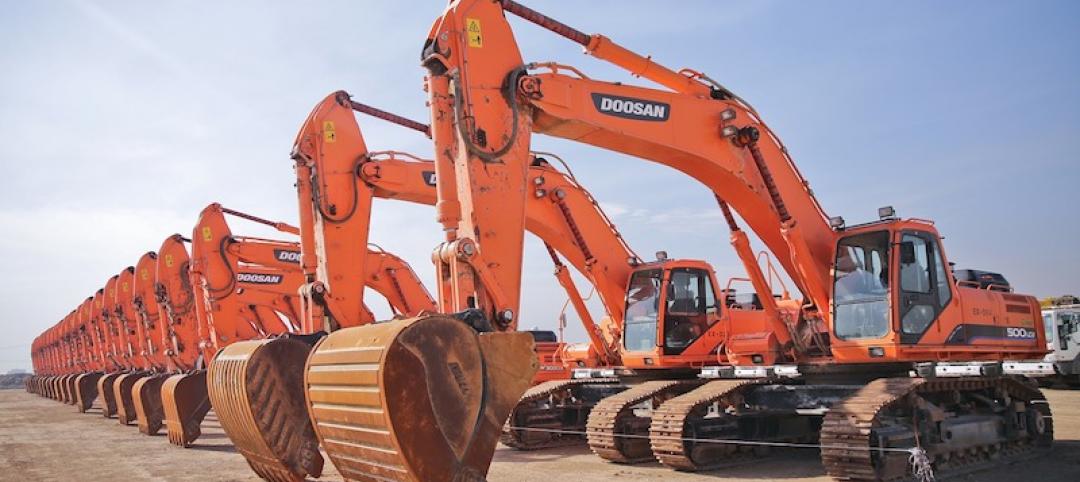Modernization that leans heavier on technology to attract a younger, diverse, and skilled workforce is likely to determine the future success and growth of New York’s construction industry.
That is one of the key takeaways from a “State of the Construction Industry” survey of 20 New York metro-area AEC firms that the accounting consultancy Anchin, Block & Anchin conducted last November, and whose results it released earlier this month.
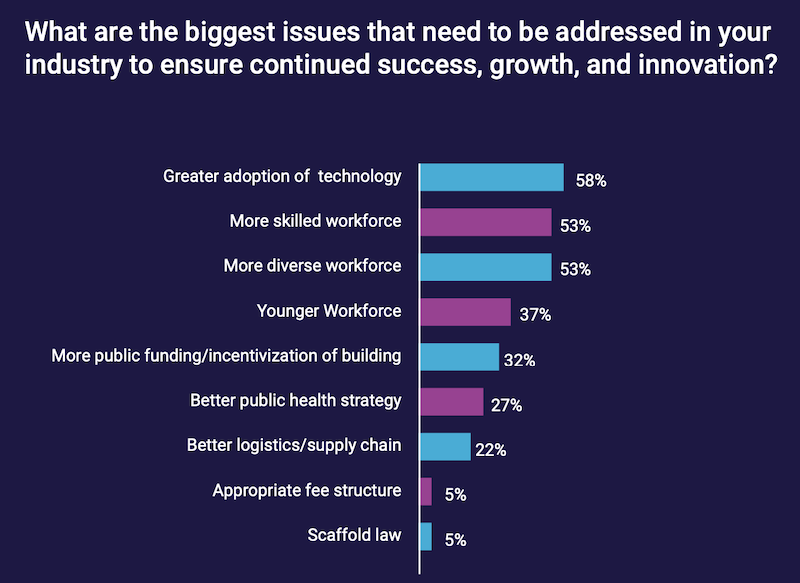
The report found a New York market that is at once resilient and facing “unprecedented challenges.” Its “most pressing” issues, as stated by nearly two-thirds of the firms polled, are labor shortages and public funding for infrastructure projects. Retaining talent is critical to these companies, and has led AEC firms toward greater flexibility about allowing remote or hybrid work, and increasing worker salaries. Thirty percent of the firms polled are focusing on management training and career development.
LIFE SCIENCES AND INDUSTRIAL SEEN AS GROWTH SECTORS
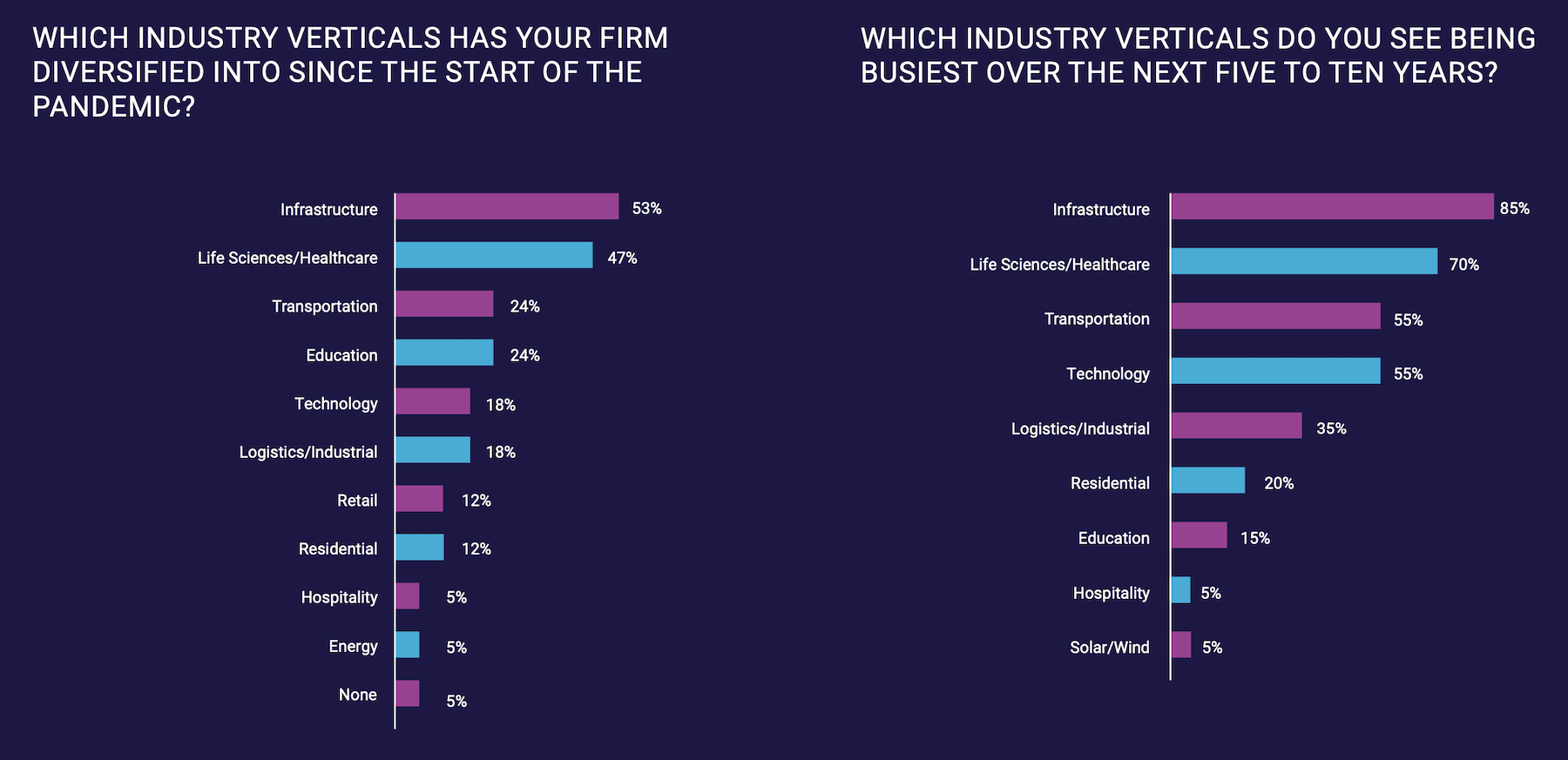
Since the coronavirus pandemic was declared in March 2020, more than half of the firms surveyed have diversified into the infrastructure sector, no doubt in anticipation of the $1.2 trillion federal infrastructure bill that President Biden signed into law last November. Eighty-five percent of the AEC firms polled expect infrastructure to be their market’s “busiest” sector over the next five to 10 years, followed by the life sciences/healthcare sector (into which nearly half of the firms polled diversified over the past 18 months}.
The survey’s authors also point to the industrial sector’s “growing momentum” as an in-demand asset driven by e-commerce.
However, AEC firms lamented the pressures being exerted on their companies’ cashflows from, most prominently, slower client payments, labor and materials cost inflation, insurance costs, and project delays.
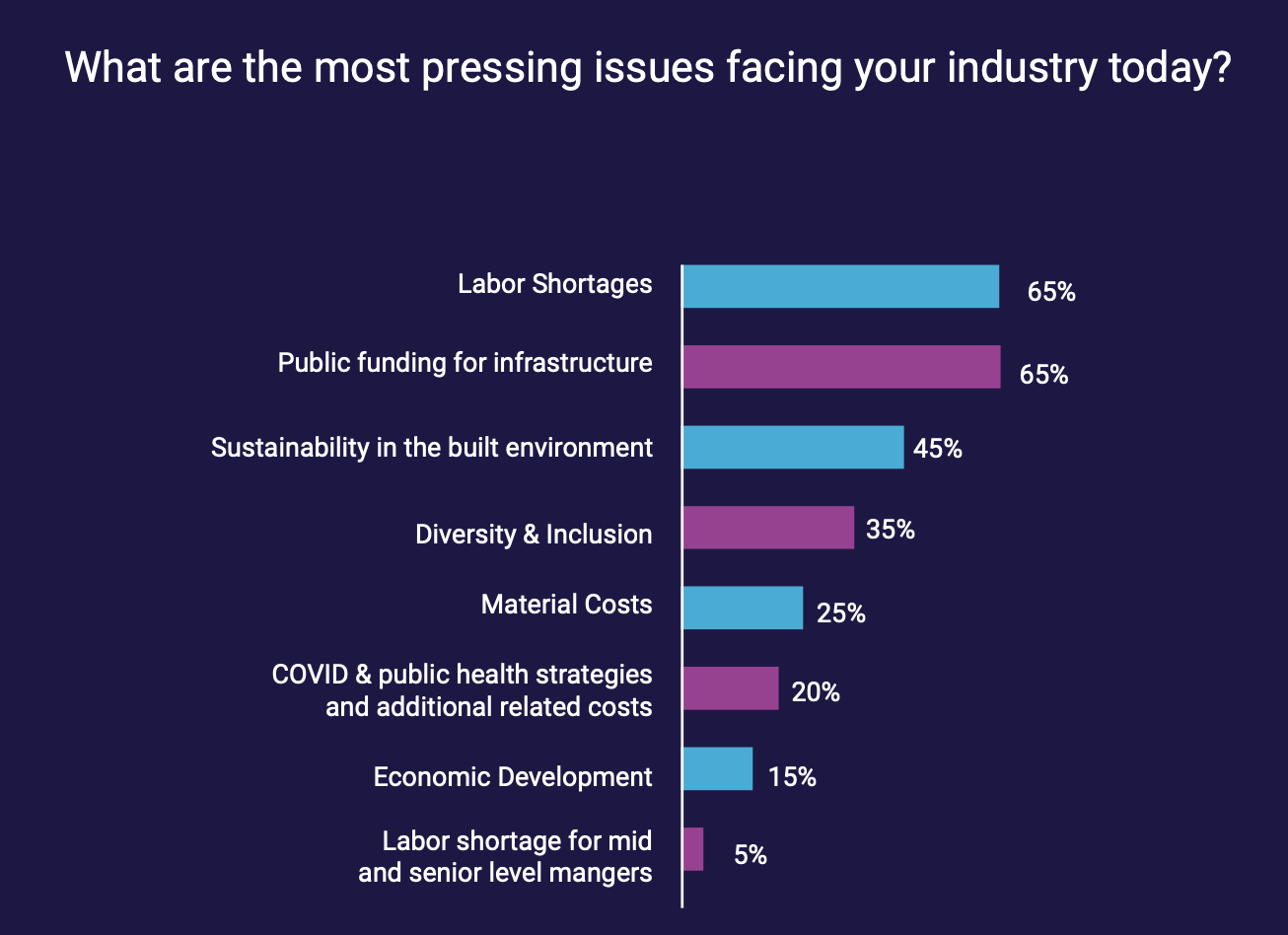
Half of the survey’s respondents said that their volume of work has increased during the pandemic, by an average of 36 percent. But 30 percent reported decreases in their companies’ work volumes, by an average of 22 percent. And 42 percent of those polled said their backlogs were down from 2019, by an average of 43 percent.
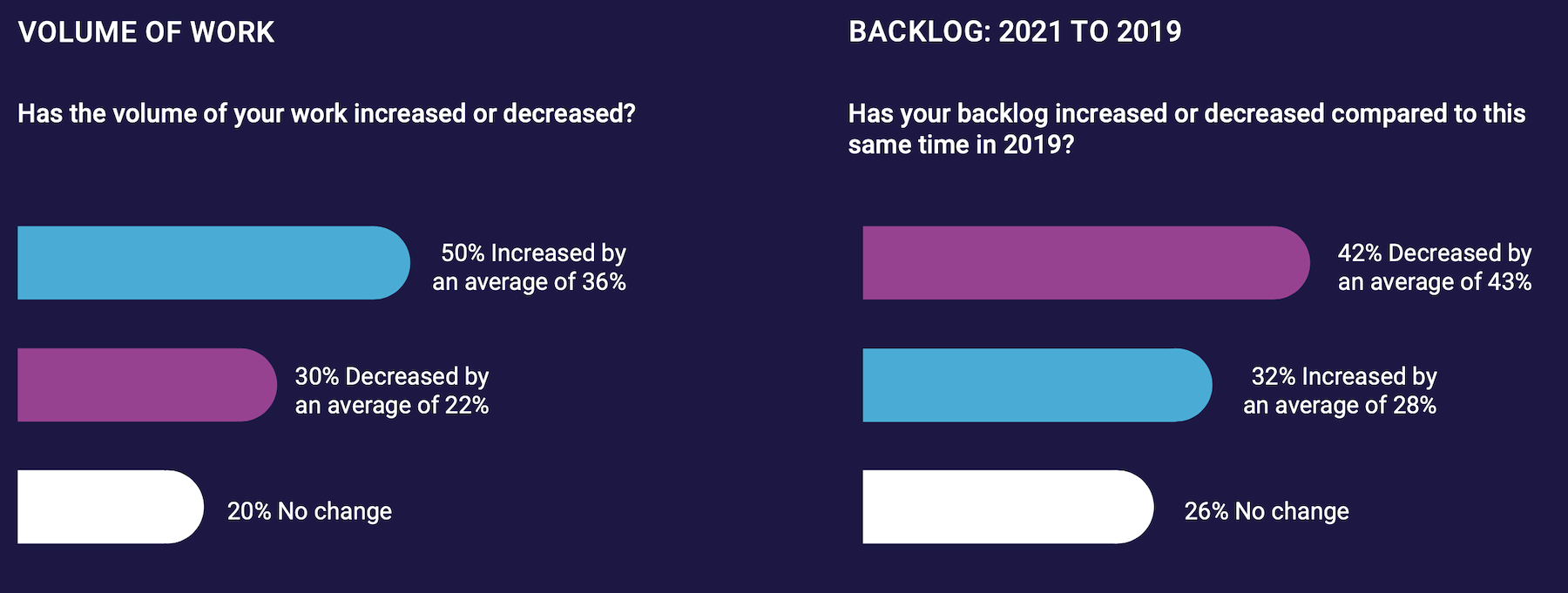
RESILIENCE AND SUSTAINABILITY ARE CENTRAL
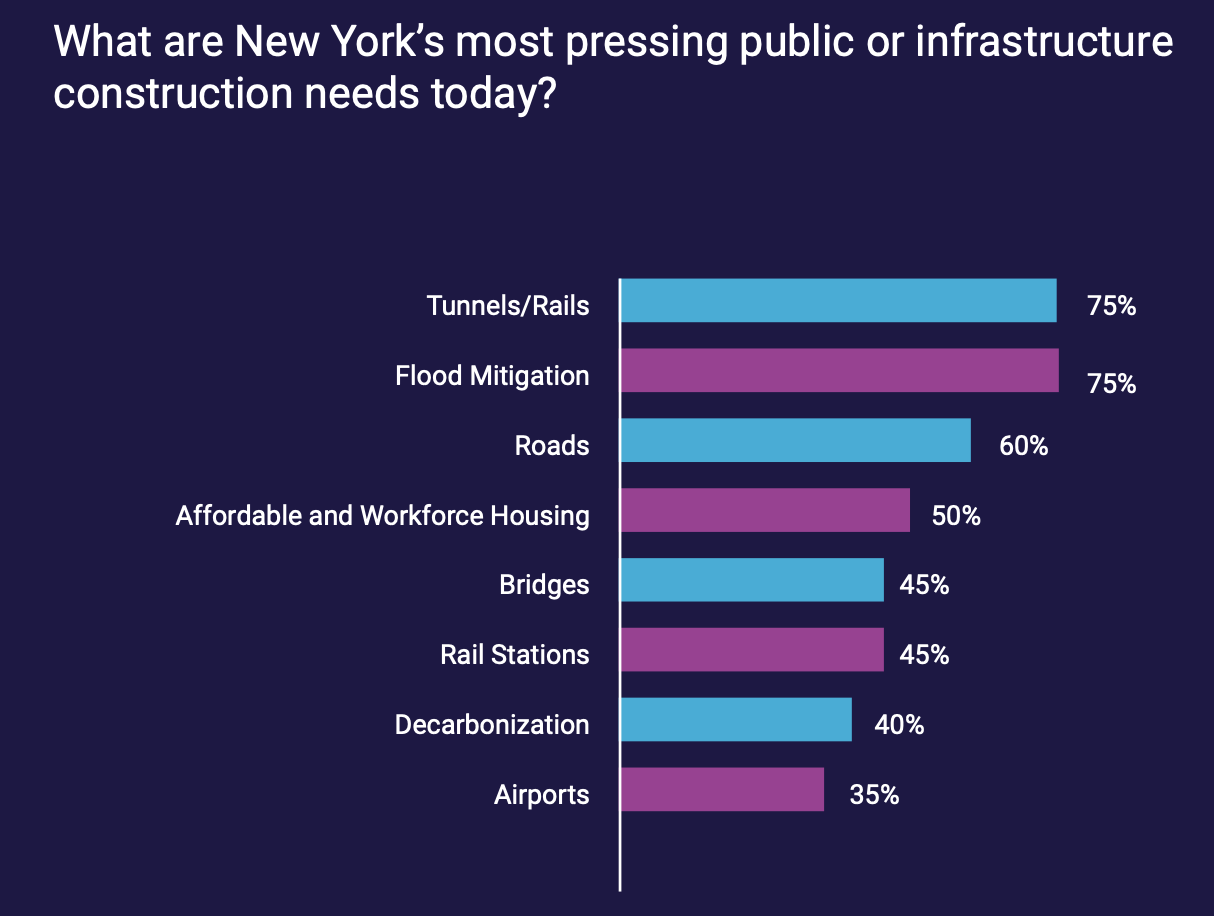
The usual suspects—tunnels, roads, bridges, rail stations—were cited by the survey’s respondents as being among the structures desperate for repair or replacement. A surprising 40 percent of the firms polled also identified “decarbonization” as a need, most probably because of New York’s Local Law 97, which passed in 2019, and creates carbon emissions limits for most commercial buildings over 25,000 sf, as well as alternative paths for the law’s two compliance periods: 2024-2029, and 2030-2034. Building owners must submit emission intensity reports, stamped by a registered design professional, every year starting in 2025 or face substantial fines.
“The overwhelming trend relates to resilience, particularly in the face of a growing urban population; and sustainability/climate change needs, which are being felt acutely,” the report states.
Related Stories
Market Data | May 29, 2018
America’s fastest-growing cities: San Antonio, Phoenix lead population growth
San Antonio added 24,208 people between July 2016 and July 2017, according to U.S. Census Bureau data.
Market Data | May 25, 2018
Construction group uses mobile technology to make highway work zones safer
Mobile advertising campaign urges drivers who routinely pass through certain work zones to slow down and be alert as new data shows motorists are more likely to be injured than construction workers.
Market Data | May 23, 2018
Architecture firm billings strengthen in April
Firms report solid growth for seven straight months.
Market Data | May 22, 2018
Vacancies stable, rents rising, and pipeline receding, according to Transwestern’s 1Q US Office Market report
The Big Apple still leads the new construction charge.
Market Data | May 18, 2018
Construction employment rises in 38 states and D.C. from April 2017 to April 2018
California & West Virginia have biggest annual job gains, North Dakota has largest decline; California & Louisiana have largest monthly pickup, Indiana & North Dakota lead monthly drops.
High-rise Construction | May 18, 2018
The 100 tallest buildings ever conventionally demolished
The list comes from a recent CTBUH study.
Resiliency | May 17, 2018
Architects brief lawmakers and policy-makers on disaster recovery as hurricane season approaches
Urge senate passage of disaster recovery reform act; Relationship-building with local communities.
Market Data | May 17, 2018
These 25 cities have the highest urban infill development potential
The results stem from a COMMERCIALCafé study.
Market Data | May 10, 2018
Construction costs surge in April as new tariffs and other trade measures lead to significant increases in materials prices
Association officials warn that the new tariffs and resulting price spikes have the potential to undermine benefits of tax and regulatory reform, urge administration to reconsider.
Market Data | May 7, 2018
Construction employers add 17,000 jobs in April and 257,000 for the year
Unemployment rate for construction increases slightly compared to year earlier as higher pay levels appears to be attracting people with recent construction experience back into the workforce.


